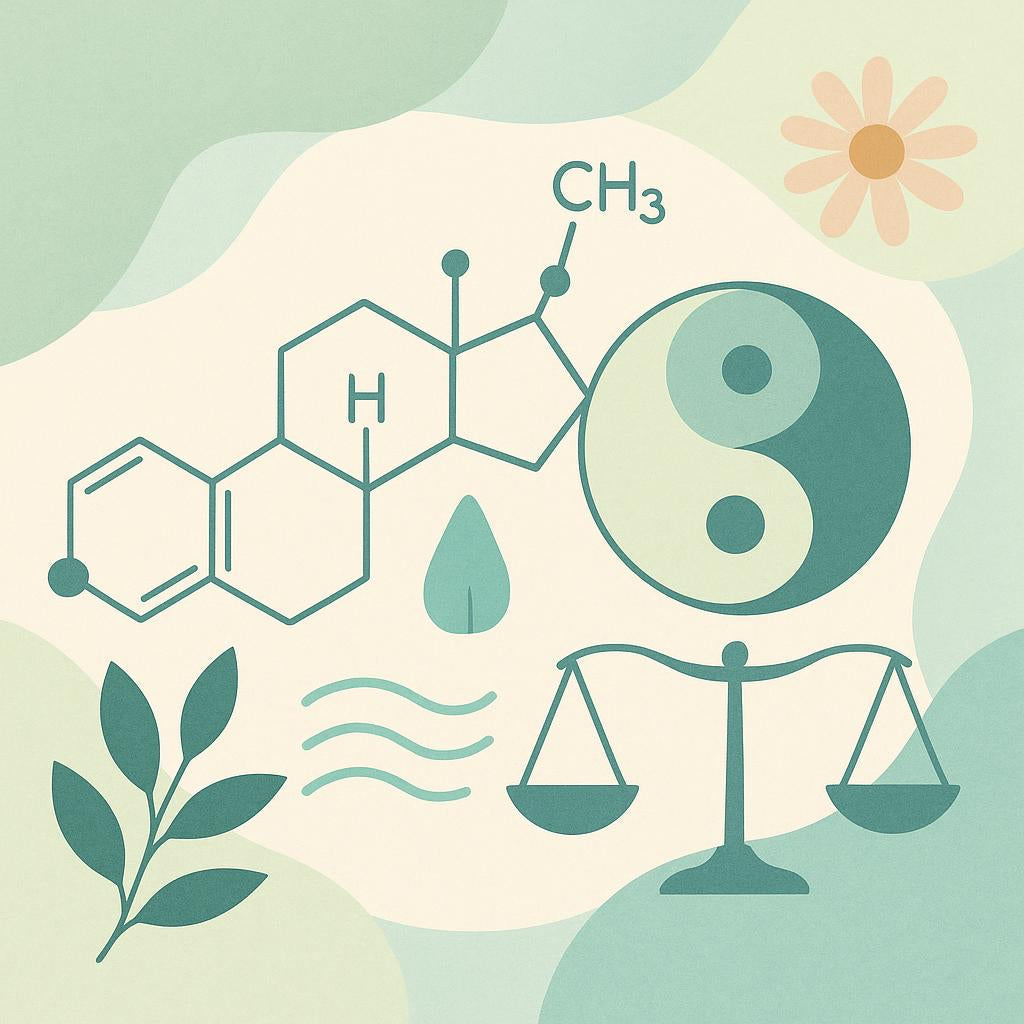Understanding Hormones: A Guide to Bioidentical Therapy
•Posted on August 31 2025

In a world where health optimization and longevity are becoming ever more central to our wellbeing, understanding the role and benefits of bioidentical hormone replacement therapy (BHRT) is crucial. This guide explores BHRT's transformative potential, particularly for women navigating the challenges of hormonal imbalances at various life stages.
The Hormonal Symphony: Cortisol and Its Impacts
Cortisol, often referred to as the stress hormone, plays a pivotal role in our body's response systems. Maintaining balanced cortisol levels is essential as it helps regulate blood pressure, energy, and even mood. Imbalances, either too high or too low, can lead to significant health issues.
High Cortisol: The Stress Response
Chronic high cortisol levels contribute to a constant fight-or-flight state, impairing digestion, exacerbating gastrointestinal issues, and potentially increasing the risk of hypertension and cardiovascular disease. High cortisol also adversely affects bone health and immune function.
Low Cortisol: Energy and Mood Challenges
Conversely, low cortisol leads to decreased energy, motivation, and mood disturbances. It also impacts blood pressure regulation and overall resilience to stress.
Regulating Cortisol: Lifestyle Adjustments
Adopting stress reduction techniques and improving sleep quality are foundational to restoring cortisol balance. Incorporating adaptogenic herbs like ashwagandha and lifestyle interventions such as exposure to morning sunlight can also foster recovery.
Exploring Bioidentical Hormone Replacement Therapy (BHRT)
BHRT is a personalized approach to managing hormone imbalances, particularly for women undergoing menopausal transitions. Unlike synthetic hormones, bioidentical hormones closely mimic those produced naturally by the body, offering a safer alternative.
Impact of the Women's Health Initiative Study
The 2002 Women's Health Initiative Study caused significant concern by associating hormone replacement therapy with increased risks of heart disease and cancer. However, this study focused on synthetic hormones, not bioidentical formulations, which offer a safer profile when used under professional guidance.
Types of Hormone Therapies
Estrogen and Progesterone
Women typically replace both estrogen and progesterone in BHRT. Estrogen, particularly in its estradiol form, supports bone health, cognition, and mood, while estriol offers protective anti-inflammatory benefits. Progesterone complements estrogen by providing calming effects through its action on GABA receptors.
Testosterone and DHEA
Testosterone and DHEA are vital for maintaining muscle mass, mood, and libido. DHEA serves as a precursor to testosterone and estrogen, making it a powerful tool for supporting hormonal balance.
Optimizing Hormonal Health
Embarking on a BHRT journey requires monitoring and adjustments. Regular testing helps fine-tune treatment to individual needs, ensuring testosterone and estrogen are balanced correctly. This personalized approach maximizes the benefits of BHRT, potentially lowering the risk of cardiovascular diseases, bone loss, and improving overall quality of life.
Conclusion: A Balanced Approach to Longevity
Understanding and embracing bioidentical hormone replacement therapy can significantly impact health and longevity. By integrating modern science with holistic approaches, BHRT offers a pathway to maintaining vitality and wellness well into later decades. Begin your journey to hormonal harmony today, and thrive with informed, integrative care.
Listen to the full interview with Dr Kelly Ruef on Lisa's Podcast "Pushing the Limits"